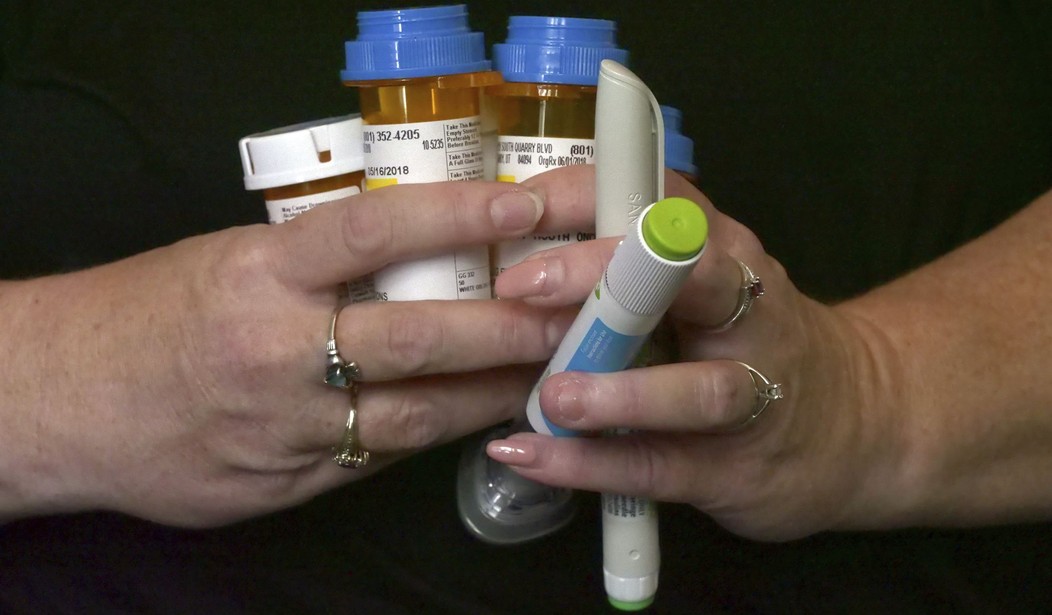Although other types of health care costs are rising more quickly, prescription drugs are a visible target of concern for financially stretched Americans because they often must pay out of the pocket right at the pharmacy counter. But as policymakers consider addressing this issue, they must be careful to preserve what makes the American health system the most dynamic and innovative in the world. Proposals that amount to price controls or penalties for drug manufacturers or consumers – such as a bill introduced by House Republican Michael Burgess – are just not up to this task. Tearing down regulatory barriers that unnecessarily increase prices and cut access for consumers, along with enhancing oversight of government programs that incentivize waste and abuse, would be much more effective over the long run.
The U.S. is a leader in innovating new medicine, but current costs of health care remain volatile. This systemic problem is a consequence of the United States’ awkward, often clunky relationship between the private and public sectors. Nowhere is this tension felt more profoundly than within Medicaid. According to the Kaiser Family Foundation, Medicaid spending on prescription drugs can spike considerably, as much as 25 percent within a single year. This situation has led many well-intentioned legislators to fight for new but ultimately harmful regulatory initiatives. Congressman Burgess’ most recent push to eliminate the cap on mandatory “rebates” for Medicaid prescription drugs is the latest example.
Burgess’ legislation suffers from the inherent flaw of attempting to solve government-created problems with more government. The current system of federally-mandated paybacks for prescription drugs is already convoluted – the “savings” are not meaningfully passed along to consumers, like rebates on other private sector products are. This scheme forces drug companies to provide their medication to Medicaid at a reduced price, and sometimes even for free. Though effectively a Medicaid price control, the rebate system was tolerated by the healthcare industry, mainly because the 100 percent rebate cap prevented the manufacturers from ever having to actually pay Medicaid to use their product.
Recommended
But under the Burgess bill (H.R. 107), the rebate cap of 100 percent the average manufacturer price would be lifted. This means that, potentially, drug manufacturers could be forced to sell their drugs to Medicaid, then pay the government an amount in excess of the drug’s price.
Proponents of the bill have argued that sunsetting the rebate cap provides the benefit of reducing the cost of Medicaid. But what this actually means is that drug manufacturers will just pass along the cost in the form of higher prices for patients and consumers who use the same drugs outside Medicaid. The balloon will get squeezed into the private marketplace to make up for newly-decreased (and potentially negative) profit margins. Alternatively, Medicaid’s access to newer drugs could slow or stop, ironically depriving the program of long-term savings that better medicines can generate (by preventing more expensive treatments such as surgeries or long hospital stays). In reviewing a considerable body of research, the Congressional Budget Office has established this important link between spending on drugs and savings in other areas of health care.
Elsewhere in the government, the Department of Health and Human Services is considering what’s called an “International Pricing Index” that would import foreign drug price controls for the other big health program, Medicare. According to economists, this proposal would lead to supply shortages and less investment in new, better treatments. Rather than importing other countries’ bad policies – where they have shortages and innovation has slowed to a crawl – public officials should do as the U.S. health system does and innovate, rather than regulate.
Some of the main drivers of prescription drug price increases are due to overregulation by the federal government. The approval process at the Food and Drug Administration can still be improved, and quicker approvals of biosimilars would be extremely helpful. Government programs themselves have exceeded cost growth in other medical areas, precisely because of a lack of oversight and reform. There are numerous additional options for controlling drug costs that don’t involve bigger government.
H.R. 107 wouldn’t actually generate additional savings in the health care system; it would only shift costs from Medicaid to private insurance companies, and ultimately to the American people. While there are a variety of good market-based proposals to reduce the costs of health care, increasing Medicaid rebates – and further straining a system already groaning under the weight of government bureaucracy – shouldn’t be one of them.

























Join the conversation as a VIP Member